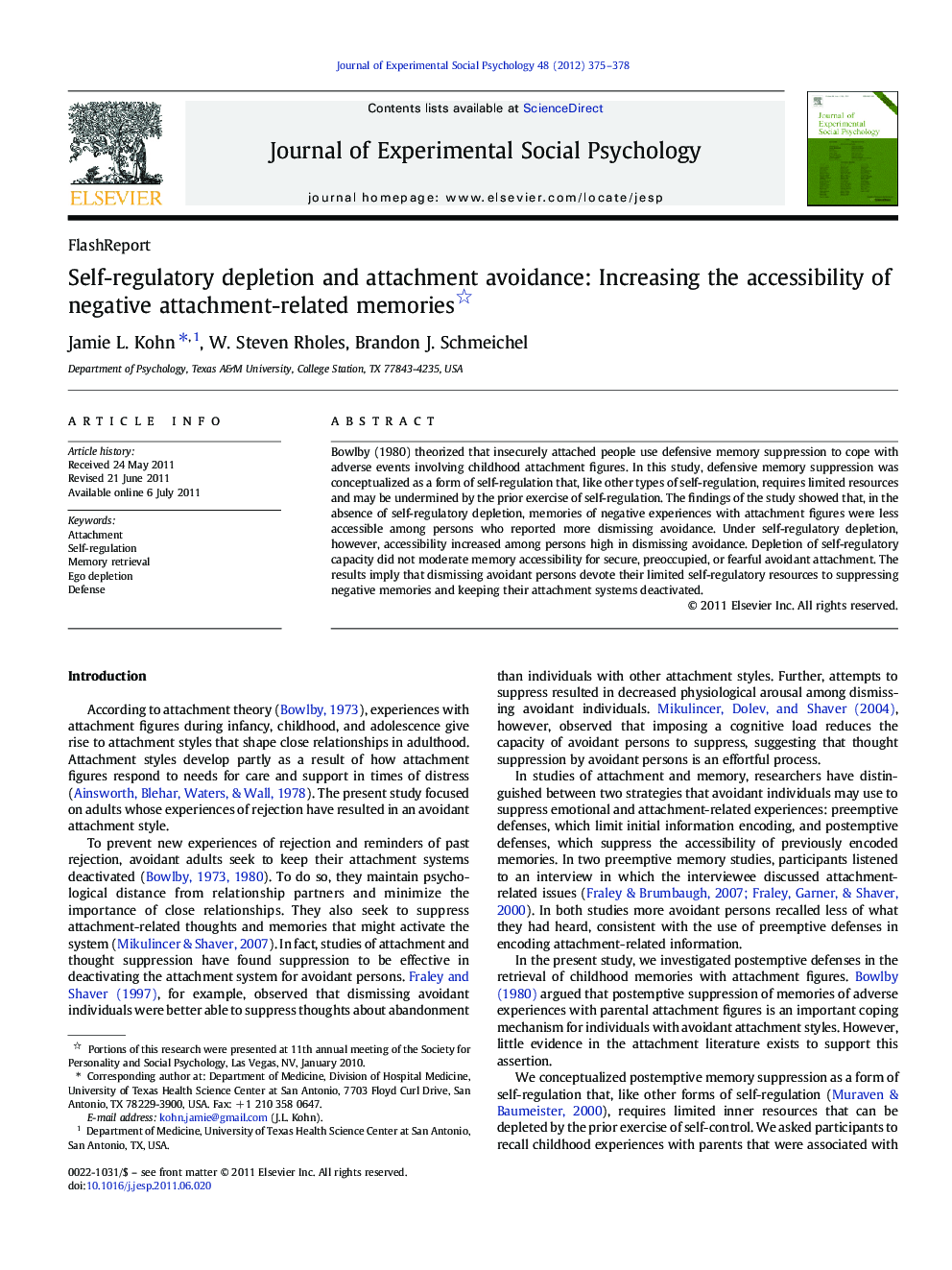| Article ID | Journal | Published Year | Pages | File Type |
|---|---|---|---|---|
| 948250 | Journal of Experimental Social Psychology | 2012 | 4 Pages |
Bowlby (1980) theorized that insecurely attached people use defensive memory suppression to cope with adverse events involving childhood attachment figures. In this study, defensive memory suppression was conceptualized as a form of self-regulation that, like other types of self-regulation, requires limited resources and may be undermined by the prior exercise of self-regulation. The findings of the study showed that, in the absence of self-regulatory depletion, memories of negative experiences with attachment figures were less accessible among persons who reported more dismissing avoidance. Under self-regulatory depletion, however, accessibility increased among persons high in dismissing avoidance. Depletion of self-regulatory capacity did not moderate memory accessibility for secure, preoccupied, or fearful avoidant attachment. The results imply that dismissing avoidant persons devote their limited self-regulatory resources to suppressing negative memories and keeping their attachment systems deactivated.
► Avoidantly attached persons defensively suppress negative emotional memories. ► We tested whether self-regulatory depletion would affect recall of negative memories. ► Negative memories were less accessible for persons with more dismissing avoidance. ► Dismissing avoidant persons accessed these memories more quickly when depleted. ► Memory suppression is an effortful process in dismissing avoidant individuals.
